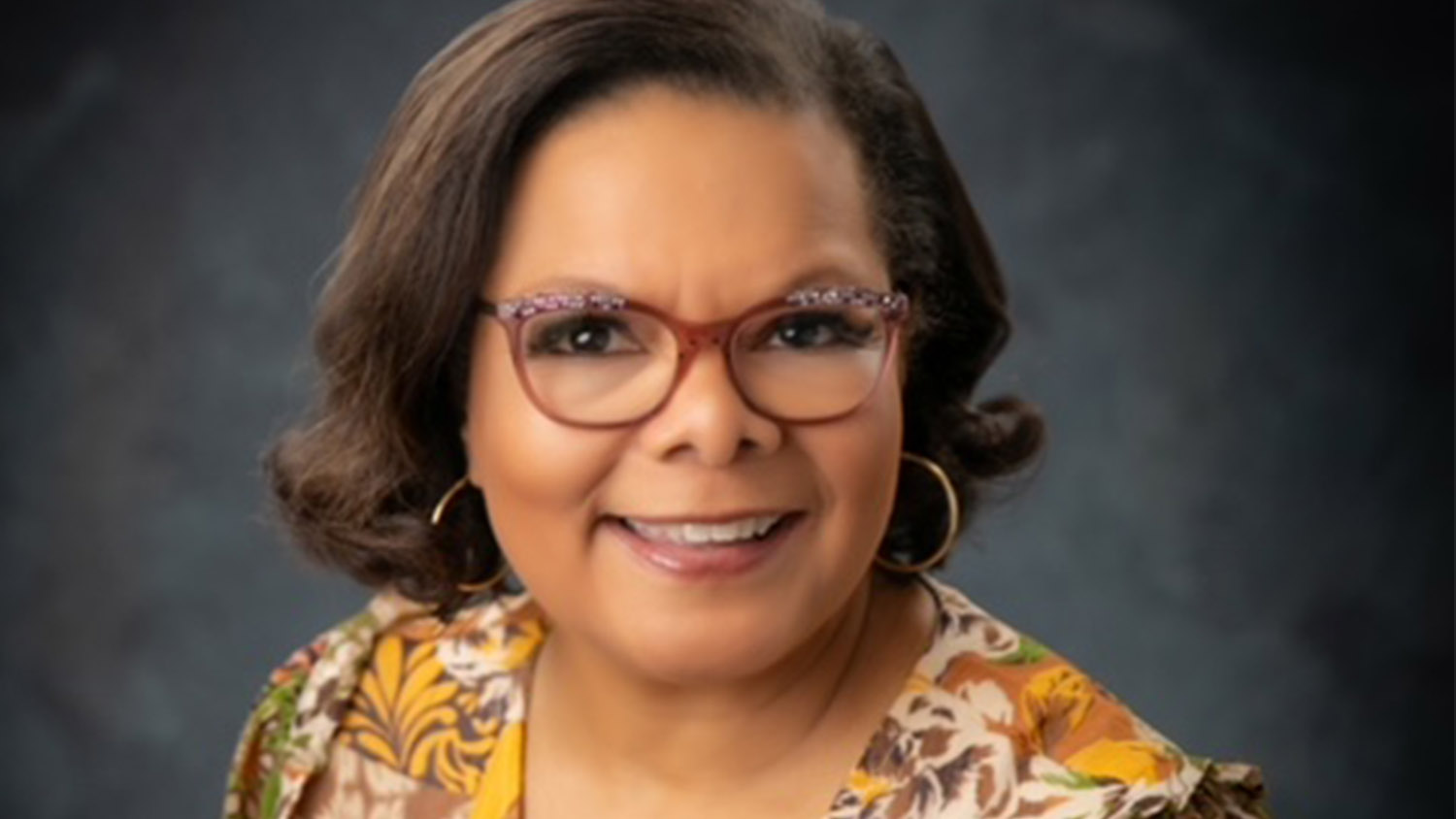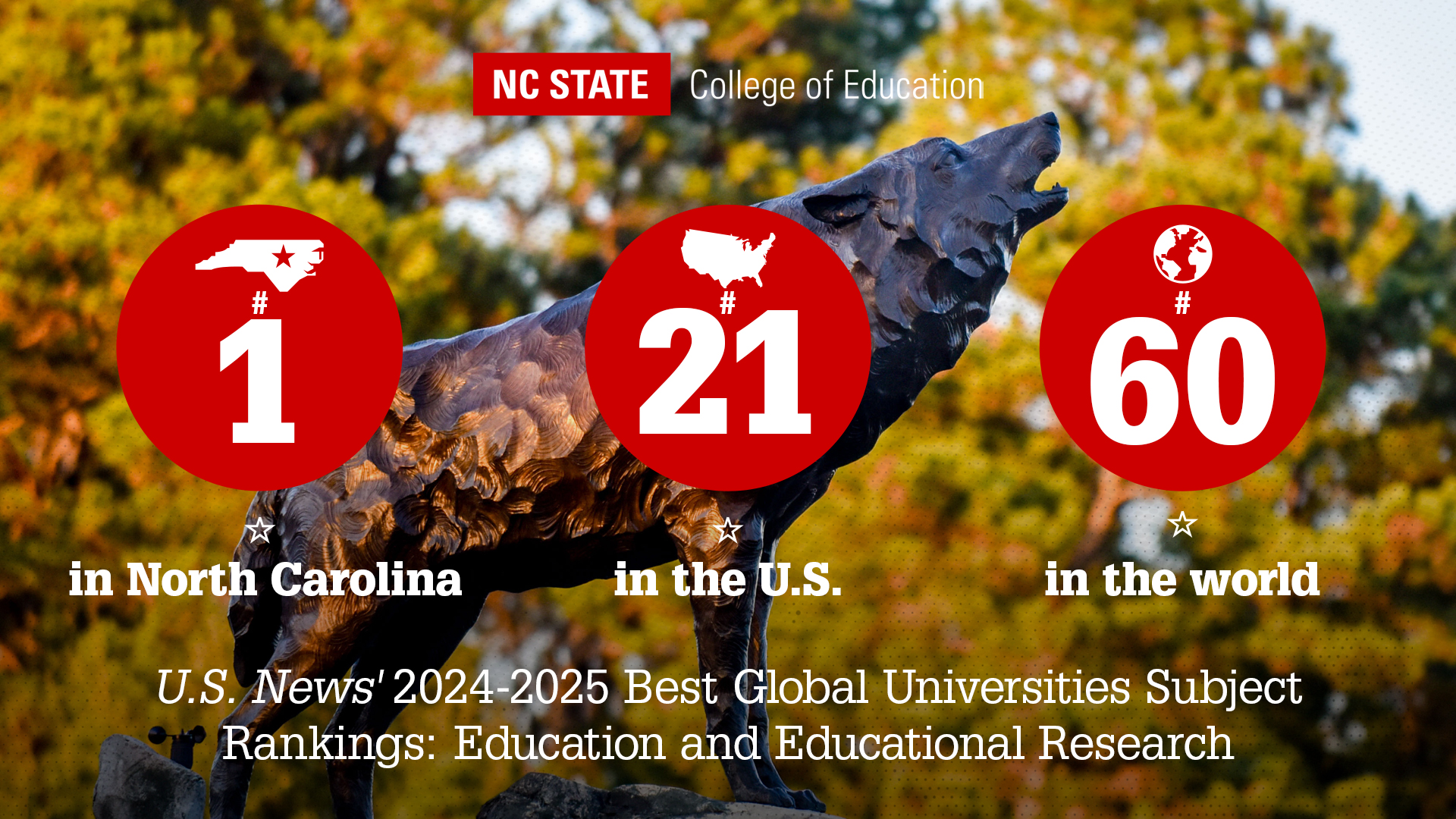Eight College of Education Doctoral Students to Receive Dissertation Research Continuity Grants to Help Offset Challenges Faced During COVID-19 Pandemic

As a result of the ongoing impacts of the COVID-19 pandemic, many College of Education doctoral students are experiencing unexpected challenges as they conduct their dissertation research. Now, the college is providing emergency financial support for eight of these students through Dissertation Research Continuity Grants, funded by the Excellence Fund and the NC State Graduate School.
The Excellence Fund, which provides support for student scholarships, student experiences, equity initiatives and educational innovation, is administered by College of Education Dean Mary Ann Danowitz, D.Ed., who has the discretion to direct funds toward the most critical needs and priorities.
“The effects of the COVID-19 pandemic have been felt by everybody, including our doctoral students who now face unexpected obstacles in their research in schools and colleges or must navigate competing demands on their time as they take on additional familial responsibilities while children engage in virtual learning,” Danowitz said. “I am pleased to be able to award these grants to these eight students who are conducting impactful research that reflects the diversity of scholarship across our college.”
Dissertations that have received funding examine topics that include computational thinking, the effects of technology-integration policy on student achievement, the retention of early career teachers in high-need school districts, the effects of virtual reality in workforce training and the effects of a program to support the transfer of Hispanic students from community colleges to universities.
Karen Hollebrands, Ph.D., interim associate dean for research and innovation, said many doctoral students have had to take a new approach to their planned dissertation research as the ability to conduct face-to-face interviews became difficult as a result of the ongoing pandemic. Some have requested funding to create online survey models while others have shifted their focus to conducting secondary analysis on existing data.
Some students require training to change their methodological approach as they are forced to change their initial research plans and one international student must find entirely new sample groups after the pandemic prevented him from collecting data from planned sites in the U.S., Hollebrands said.
Recipients of the funding, which has a combined total of $22,000, have previously won awards for their research efforts, have received grants and fellowships to participate as national conference leaders and have had publications cited in their fields.
“We know that these students are experiencing challenges because of COVID-19 in terms of how to collect data or having to change their plans entirely. They are coming up with creative solutions to complete their research and this is a way to provide support to those adversely impacted students so they will still be able to stay on track and graduate on time,” Hollebrands said.
Students who receive Dissertation Research Continuity Grants have agreed to participate in a virtual graduate support group hosted by Hollebrands and committed to submitting a research manuscript to a top-tier journal based on their dissertation research following their final oral defense.
See a full list of the students, and the projects they have received funding for, below:
- Fallon Brewington, Ph.D. candidate in adult and community college education, for “Examination of VR on Workforce Training”
- Amanda Danks, Ph.D. candidate in educational evaluation and policy analysis, for “What are the Effects of a Technology-focused Districtwide Turnaround Model to Address Historic Achievement Deficits in One N.C. District?”
- Rebekah Davis, Ph.D. candidate in learning design and technology, for “Exploring Adolescents’ Sense of Presence with Educational Content in Immersive Virtual Reality: A Mixed Methods Study”
- Christopher Knight, Ph.D. candidate in adult, workforce and continuing professional education, for “A Qualitative Case Study of How Community Colleges Undertake Transformational Change to Build Institutional Capacity and Increase Student Success”
- Jacqueline Perry-Higgs, Ph.D. candidate in educational leadership, policy, and human development, for “Relationship Between Sense of Community and Attrition Among Early Career Teachers”
- Tamika McElveen, Ph.D. candidate in educational psychology, for “African American Students’ Perceptions of Communal Socialization in Mathematics Classrooms”
- Arif Rachmatullah, Ph.D. candidate in science education, for “District Yet Related: Exploring the Relationships Between Computational Thinking, Scientific Reasoning, and Systems Thinking in Secondary and Post-secondary STEM Classrooms”
- Steve Turner, Ed.D. candidate in community college leadership, for “A Collective Case Study on the Experience of High-impact Practice Participation on Hispanic Student Transfer Success”
- Categories:


